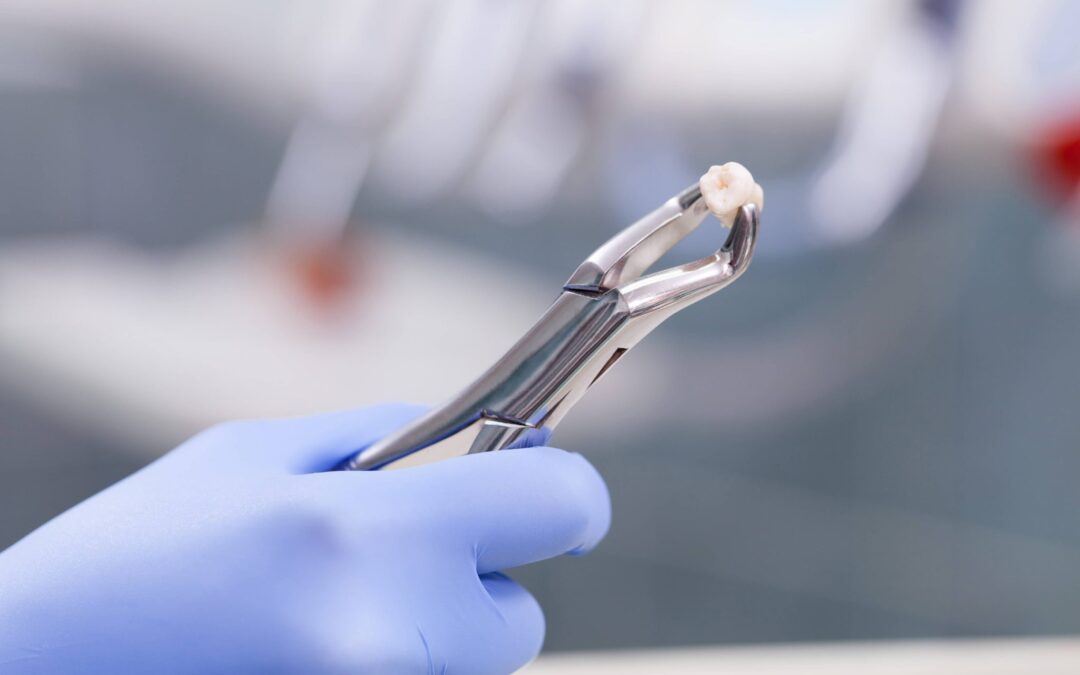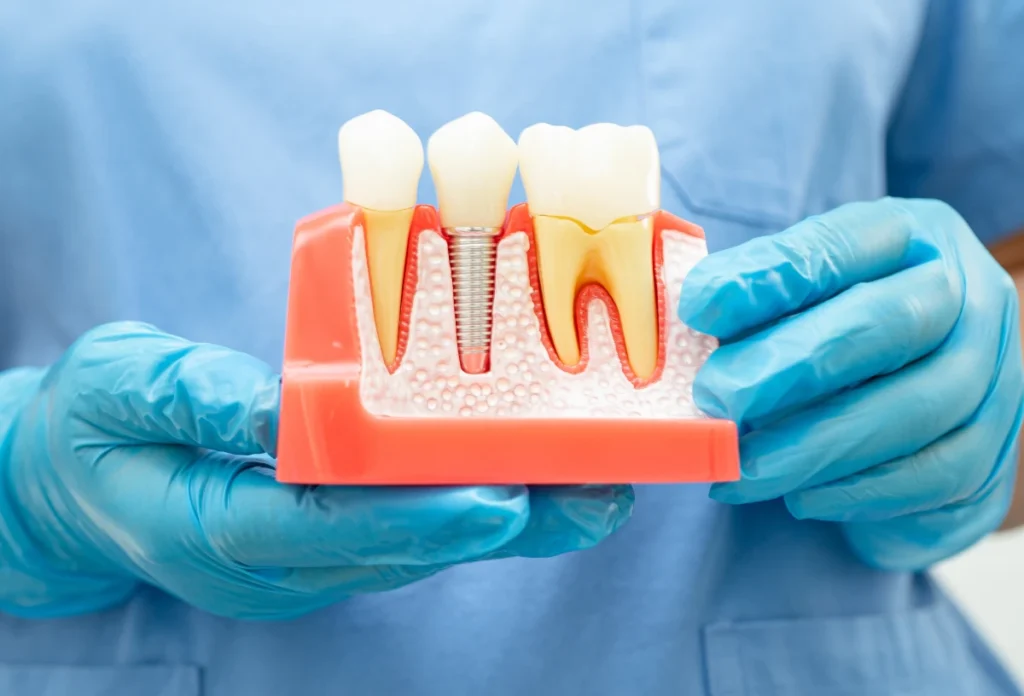How Much Does Wisdom Teeth Removal Cost?
Wisdom teeth removal has almost become a rite of passage—nearly everyone goes through it. However, if you need your wisdom teeth extracted, you’re probably concerned about how much wisdom teeth removal costs. We understand that the last thing you want to do is shell out money for a dental procedure, but there is such a thing as affordable wisdom teeth removal.
Learn more about wisdom teeth removal cost and how you can save on your procedure.
Do I Have to Get My Wisdom Teeth Removed?
That depends. Typically, your dentist will only recommend wisdom tooth removal if it is necessary for the well-being of your overall oral health. Some people are able to keep their wisdom teeth without any problems, but there are also a lot of people who have their wisdom teeth removed. Often, the risks posed by wisdom teeth, such as overcrowding, misalignment, or infection, are too high to consider leaving the teeth in place.
Interested in learning more about the debate between whether you should keep or remove wisdom teeth? Be sure to check out our article, which covers some of the reasons in favor of removing wisdom teeth.
In general, you should heed the recommendation of your dentist when it comes to removing wisdom teeth—they know best after all.

How Much Does Wisdom Teeth Removal Cost?
Here’s a breakdown of what you can expect your wisdom teeth removal to cost:
- Single wisdom tooth extraction without dental insurance: $200 to $700 per tooth
- Wisdom teeth extraction for all four wisdom teeth without insurance: $800 to $2,800
- Average cost of wisdom teeth removal with dental savings plan: $60 to $500 per tooth
The cost of wisdom teeth removal depends on a variety of factors, including whether or not you have insurance and how many wisdom teeth need to be removed. Without dental insurance, you can expect wisdom teeth removal costs to be around $200 to $700 per tooth. If you’re removing all four of your wisdom teeth, it could cost you anywhere from $800 to $2,800.
However, it doesn’t have to cost that much. With a dental savings plan, you can reduce that cost to just $60 to $500 a tooth, depending on the type of extraction you need.
Keep in mind that these are just estimates, and your wisdom tooth extraction cost may be higher or lower, depending on your specific circumstances.
Factors That Affect Wisdom Teeth Removal Costs
The significant variance in wisdom teeth removal cost is due to several factors. Some of the factors that can impact the cost of wisdom teeth extraction include:
- The method of extraction: Some wisdom teeth can be easily extracted (known as a simple extraction), while others require a more sophisticated procedure, known as impacted wisdom tooth removal. Typically, an oral surgeon, who usually performs impacted wisdom tooth removal, will cost more than a regular dentist.
- The number of wisdom teeth being removed: Your total wisdom teeth extraction cost depends on how many teeth you’re having removed. This is because removing more wisdom teeth requires more of the doctor’s time.
- Where your wisdom tooth removal is being performed: Location can also impact the cost of wisdom teeth removal. This is because the cost of operations varies from practice to practice—usually, prices are higher in big cities—which means they need to charge more for their procedures to remain profitable.
Is Wisdom Teeth Removal Covered by Health Insurance?
Sometimes health insurance will cover wisdom teeth removal— in whole or in part—if it is considered medically necessary, for instance, if it is considered medically necessary due to the extent of damage they can cause to surrounding teeth.
To determine whether wisdom teeth removal costs will be covered by your insurance, check with your provider before the procedure.
Ways to Save on Wisdom Teeth Removal Costs
Your most affordable wisdom teeth removal option will be found at a general dentist. But even if you have to visit a dental specialist, there are some great options to save more money at your visit for you and your family.
Dental Savings Plans
Our dental savings plans offer significant savings on wisdom teeth removal at dental offices near you. The plan you choose will depend on the type of dentist you need. If you need to see a specialist (in this case, usually an oral surgeon) to remove your wisdom teeth, choose our Dental Access plan powered by the Aetna Dental Network. If you plan to see a general dentist, select our Careington Care 500 plan for maximum savings.
Wisdom teeth extraction with our Care 500 plan would reduce the cost of the extraction from between $200 and $600 a tooth without dental insurance to $60 and $200 a tooth, depending on the type of extraction needed and the state in which you live. Just search our providers to find a general dentist or oral surgeon near you who can perform wisdom teeth removal.
Dental Insurance
If you have insurance, see how much it can help you save on this procedure, so you can plan accordingly. Make sure to take note of any annual maximums. Typically, once these maximums are reached, you will need to pay out-of-pocket for the rest—check with your provider to learn more. If this is the case, consider using a dental savings plan (mentioned above) once you have reached your maximum to help reduce the remaining cost.
Together, your insurance and dental savings plan can significantly reduce your wisdom teeth removal cost since the dental savings plan can reduce your out-of-pocket wisdom teeth removal cost after hitting the maximum.
Use Your HSA or FSA
A lot of companies offer employees a Health Savings Account (HSA) or a Flexible Spending Account (FSA) with your healthcare plan. An HSA or FSA can be used to help cover out-of-pocket medical expenses for the year. If you haven’t already used all of this money, you can put some of it toward this procedure.
Payment Plan
Although this wouldn’t exactly reduce your wisdom tooth extraction cost, talking to your dentist or oral surgeon about a payment plan can make the cost more manageable for you or your family. Instead of paying for the procedure all at once, your dentist may be willing to break up the payment over several months.
How Long Will It Take to Recover from Wisdom Teeth Removal?
The recovery stage is going to be mostly up to you—usually, it takes about two to three days. However, that all depends on how well you follow your dentist’s instructions, how much rest you get, and how well you take care of your health. With those in mind, here are a few things to keep in mind that can help hasten your recovery after wisdom tooth extraction:
- Follow Your Dentist’s Instructions. To experience the quickest possible recovery and the least amount of pain, listen to and follow your dentist’s post-care instructions.
- Avoid touching the extraction site. Touching the area with your fingers can introduce germs to the extraction site, which could lead to infection. You also want to exercise care while brushing for the next few days—you don’t want to disrupt the healing of the treatment area.
- Only eat soft foods. During recovery, you want to have a soft food and liquid diet, which can include yogurt, soup, smoothies, and eggs. You should also stay away from foods that can easily get stuck in your gums and spicy foods that can cause irritation.
- Rest as Much as Possible. As you rest, your body is able to focus energy on recuperating from the extraction. You may be dizzy and tired for the first few days after your extraction; a two- to three-day recovery period is average. If you try to get back to your routine too quickly, however, you may be stuck at home much longer! Try not to put extra stress on your body in any way, especially by talking or participating in strenuous activities.
And don’t forget to enjoy the time off. Take this opportunity to read that book that’s been sitting on your shelf gathering dust, watch that show that’s been in your queue for months, or catch up on sleep you’ve been missing out on. Following your dentist’s instructions and choosing to relax adds up to a quick and easy recovery, allowing you to step right back into the regular flow of your daily life.
How Much Time Off Do You Need for Wisdom Tooth Removal?
Typically, two to four days off for wisdom tooth removal recovery is sufficient. However, if your wisdom teeth were impacted, you may need to take an extra day or two to recover.
Before you request time off, ask your dentist for their recommendation. They can likely gauge how intensive your recovery will be based on the type of extraction being performed to remove your wisdom teeth. However, if you have an especially low pain tolerance or typically struggle with recovery from dental procedures, you may want to request more time off—remember, you know your body best.
Where Can I find Cheap Wisdom Teeth Removal Near Me?
With our dental savings plans, you can find a dentist near you who performs affordable wisdom tooth removal. Instead of calling around to local dentists to ask, “how much is wisdom teeth removal?” you can use our tool to find a dentist near you who accepts our dental savings plans. Simply input your zip code and see which dentists or oral surgeons near you are in our dental savings network.
Save on Your Wisdom Teeth Removal
Keep these cost factors and savings options in mind when planning your wisdom teeth removal. While it won’t make the removal process any more pleasant, you can enjoy some peace of mind that you saved some money.
Summary – Why is the Preferred Plan our best seller for wisdom teeth?
- Best savings at general dentists AND specialists
- Exact procedure prices online with Care 500
- Largest list of dentists with Dental Access
- Millions of members, in business since 1979
- At an everyday low price – no gimmicks






